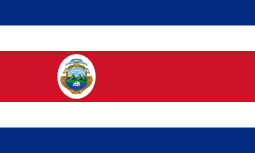Costa Rica
Insurance for Expats in Costa Rica
 Overview
Overview
Costa Rica has consistently performed favorably in the Human Development Index (HDI), placing 62nd in the world as of 2020, and fifth in Latin America. Cited by the United Nations Development Programme (UNDP), Costa Rica has attained much higher human development than other countries at the same income levels, with a better record on human development and inequality than the median of the region.
In addition, it performs well in comparisons of the state of democracy, press freedom and subjective happiness. According to the Press Freedom Index, it has the 7th freest press. it is the 37th most democratic country according to the Freedom in the World index and it is the 12th happiest country in the World Happiness Report. The country is a popular destination among retired expatriates.
Costa Rica’s Health Care System and Health Insurance in Costa Rica
Generally speaking, expats residing in Costa Rica are generally happy with the quality of the healthcare system and health insurance. In accordance with The United Nations, it is ranked as one of the top 20 public systems in the world, and the best in Latin America. Medical care is so renowned that the country is even known for medical tourism, especially with people from countries with more costly medical procedures such as the US.
The standard of healthcare is some of the best in Latin America. There are two healthcare systems, namely, public healthcare and private healthcare in Costa Rica, both of which expats can access. In comparison to the majority of developing countries, Costa Rica’s medical cost is lower on the whole. A great deal of physicians, especially those who are working in private medical facilities speak fluent English.
In Costa Rica, the state universasl healthcare system is the Costa Rica Social Security fund or Caja Costarricense de Seguro Social (CCSS). The system is typically referred to as ‘Caja’. CCSS oversees the provision of cost-effective healthcare to the population through its network of hospitals and clinics.
Despite many expatriates having access to Costa Rica’s public healthcare system, the majority go for private healthcare services which provide faster services and a better standard of care. While the private healthcare system is more expensive than the public one, it is not overly costly in comparison to what expatriates are probably accustomed to paying in Western countries in Europe and North America.
The Costa Rican government requires expatriates who are legal residents of the country to enrol in Caha and contribute monthly based on a percentage of their income. This allows them access to free treatment for everything from a check-up and prescription drugs to key surgeries under the CCSS. As dependent spouses are also covered by CCSS, other visitors and tourists will only have access to public healthcare services in emergencies.
Patients have the choice of paying cash for their treatments of taking out insurance. Most expatriates in Costa Rica purchase international health insurance for peace of mind and in order for medical costs to be covered.








